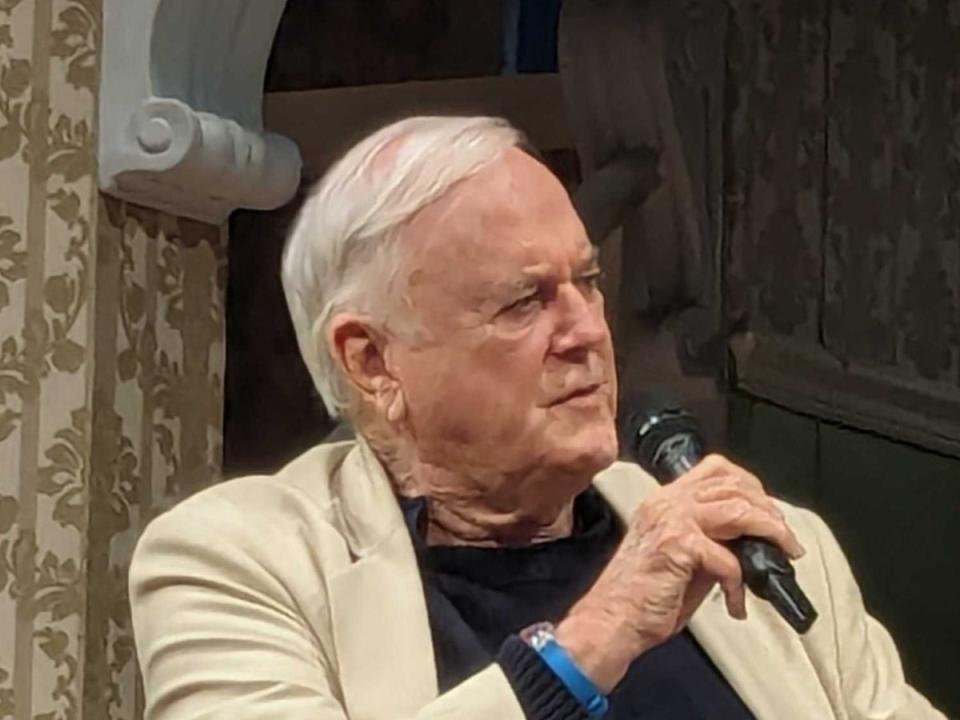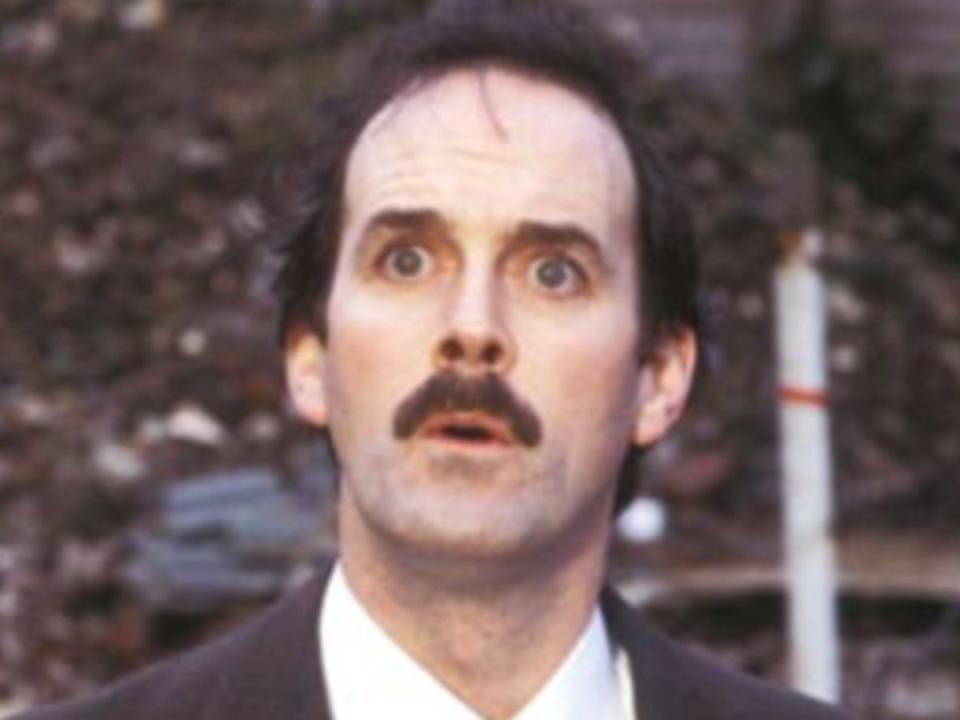John Cleese says TV comedy has been ‘ruined’ so much people ‘can’t name more than one or two’ sitcoms

John Cleese has said “literal-minded” viewers, who don’t understand when something is a joke, are ruining comedy.
One week after US comedian Jerry Seinfeld said “the extreme left” and “PC” humour had made modern comedy worse, the Monty Python and Fawlty Towers actor and co-writer, 84, questioned whether any recent sitcoms would stand the test of time.
“I don’t know that people can name more than one or two,” he said.
Cleese, who recently revealed he was “surprisingly poor” despite his successful five-decade career, was speaking at the launch of Fawlty Towers: The Play, which arrives on stage almost 50 years after the sitcom first aired.
The new production adapts three episodes of the series, including the famous “Germans” instalment, and Cleese told reporters, including The Independent, that racial slurs were removed when the script was being written to avoid offending the “literal minded” who “only have one interpretation of what’s been said”.
“I think there was a scene where the Major used a couple of words you can’t use now – racial slurs they would come under – so we took them out,” he said, adding: “You see, there’s always a problem in comedy where you’re dealing with the literal minded.”
Cleese continued: “Whenever you’re doing comedy, you’re up against the literal minded and the literal minded don’t understand irony. And that means if you take them seriously you get rid of a lot of comedy because literal minded people don’t understand metaphors, they don’t understand comic exaggeration. They don’t understand it’s a joke [and that] I don’t think that.
“People who are not literal minded can see there’s various different interpretations depending on different contexts.”
Cleese also defended racist jokes made by the character Alf Garnett in 1970s sitcom Till Death Do Us Part, stating: “People were roaring with laughter at him, not with him, but there were also people saying: ‘Thank God these things are being said at last.’”
Cleese went on to suggest that the quality of comedy has dwindled over the years – despite admitting he’s “watching very little comedy now”.

“I was reading something about a month ago, somebody was pointing out the extraordinary number of really funny comedy shows that was on our screen in 1991. There was something like 30 really funny comedies. And now, I don’t know that people can name more than one or two comedies – and why is that? I don’t know.”
The comedian said “half the trouble is there’s too much change” in the world, adding: “What stresses people is change. Whether it’s good change or bad change, it doesn’t matter – it’s change, and I think everything’s changing so fast now.
“I think everyone is getting very anxious and when people get anxious, they behave in a more ratty sort of way and are more likely to become more and more literal minded, and I don’t know what you do about it. Uninvent the internet, I suppose.”
One of Fawlty Towers’s most famous episodes, “The Germans”, saw Cleese’s character, Basil Fawlty, offend a group of German tourists.
Cleese defended the iconic episode and, in response to a question asking “why the Germans?”, he replied: “Because every film that I saw when I was young seemed to be a war film and the Germans were always portrayed as Nazis.
“Therefore, Basil’s insensitivity to those peoples’ generations would almost certainly be funny. Is that an answer?”

When the play was first announced, a spokesperson for Miguel Berger, the German ambassador to the UK, said he was “looking forward to seeing how this landmark comedy translates to the stage”.
The spokesperson hailed “The Germans” in a statement to The Mail on Sunday, writing: “We here at the embassy think the iconic restaurant scene is funny. Fawlty Towers is widely considered one of Britain’s finest comedies, and has remained popular with German audiences since it was first broadcast.”
Fawlty Towers: The Play will premiere at London’s Apollo Theatre Shaftesbury Avenue on Wednesday 15 May, with previews set for Saturday (4 May).


